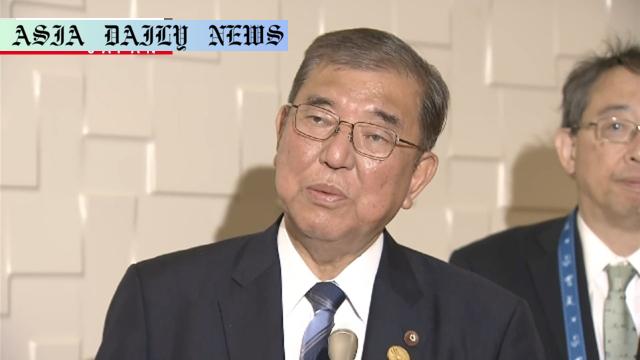Approval Rating: Prime Minister Ishiba Shigeru’s Cabinet approval fell to 36%, a sharp decline from last month, signaling public dissatisfaction.
Key Point 1: The Cabinet’s approval rating dropped to 36%, reflecting ongoing public dissatisfaction.
Key Point 2: Disapproval ratings rose to 45%, pointing to doubts about Ishiba Shigeru’s policy effectiveness.
Key Point 3: Public skepticism stems from low expectations and distrust in governance.

Falling Popularity of Prime Minister Ishiba’s Cabinet
The latest NHK opinion poll has revealed a significant decline in public approval for Prime Minister Ishiba Shigeru’s Cabinet. Support for the administration has dropped to 36%, marking an 8-percentage-point decrease from the previous month. Meanwhile, the Cabinet’s disapproval rating has surged to 45%, an increase of 10 points. Conducted over three days, the survey engaged over 1,200 respondents, offering insight into the nation’s shifting perceptions of its leadership.
For those who continue to back the Cabinet, 40% believe Ishiba’s administration remains preferable to its alternatives. Another 24% cite trust in the Prime Minister, while 17% align with the coalition of political parties forming his government. However, dissatisfaction paints a stark narrative. A substantial 39% of disapproving respondents attribute their stance to dissatisfaction with policies, followed by criticisms of the Cabinet’s perceived inefficiencies (23%) and personal distrust in the Prime Minister (13%).
Policy Perceptions
Beyond approval ratings, the poll delved into public sentiment around key policies. For instance, the recent passage of a budget bill faced mixed reactions. While 3% of respondents labeled the move “very good” and 40% called it “quite good,” a combined 48% deemed it lackluster or outright negative. Nonetheless, the collaboration between the ruling Liberal Democratic Party, coalition members like Komeito, and the Japan Innovation Party in revising the fiscal proposal reflects efforts at bipartisan negotiation despite the coalition’s lack of a Lower House majority.
Education reform is another focal area. Efforts to remove the income cap on free high school tuition received cautious optimism—15% considered the proposal “very good,” and 36% deemed it “quite good,” while criticism hovered at 44%. On the topic of raising the minimum taxation threshold, 44% found the reforms agreeable in some measure, while 50% expressed reservations.
Economic Anxiety
The specter of external economic challenges looms large over Japan’s public. U.S. President Donald Trump’s announcement of reciprocal tariffs has ignited concern, with an overwhelming 79% of respondents worried about its impact on Japan’s economy. Domestically, soaring rice prices have spurred government intervention, including the strategic release of stockpiled rice to stabilize distribution. Nonetheless, skepticism remains: 63% of participants anticipate little to no effect on prices.
Interpreting the Public Mood
The NHK poll underscores mounting public frustrations with governance and economic uncertainty. From waning trust in Prime Minister Ishiba Shigeru’s leadership to apprehensions about international trade and domestic fiscal strategies, Japanese citizens appear disillusioned. Policy successes, such as partnerships on education reform, are offset by a broader perception of inefficiency and disconnect. Whether the Ishiba administration can regain public confidence remains a pressing question in the months ahead.
Commentary
Assessing the Decline in Approval Rating
The latest NHK poll serves as a sobering reminder of how volatile public opinion can be, especially amidst economic and political challenges. Prime Minister Ishiba Shigeru’s Cabinet appears to be grappling with waning public confidence, as reflected in the 36% approval rating—a dramatic fall from the previous month. Public opinion is a crucial barometer for any democratic system, and this sharp drop raises questions about the government’s ability to meet its citizens’ expectations.
Impact of Policy Choices
Policy-making is always a balancing act, and for Ishiba’s Cabinet, this balance seems increasingly precarious. While efforts like revising the budget bill in collaboration with opposition parties show a commitment to bipartisan governance, the results are not resonating strongly with the public. Similarly, proposals to reform education and taxation come with their own sets of mixed reviews. These initiatives highlight the government’s intent but also underscore the challenges of navigating a politically fragmented landscape.
Economic Concerns and Public Trust
Economic anxiety is a recurring theme, amplified by external factors like U.S. trade policies and domestic market instabilities such as rising rice prices. With a staggering 79% of respondents expressing concern over the economic impact of U.S. tariffs, it is clear that global dynamics are adding to the strain on Ishiba’s leadership. The government’s response to these issues—whether perceived as adequate or otherwise—seems pivotal in shaping public opinion going forward.
Overall, the Ishiba administration stands at a crossroads. The poll results, though dire, offer valuable insights into the public’s priorities and grievances. Addressing these issues head-on could help rebuild trust and establish a foundation for more robust governance in the future.


